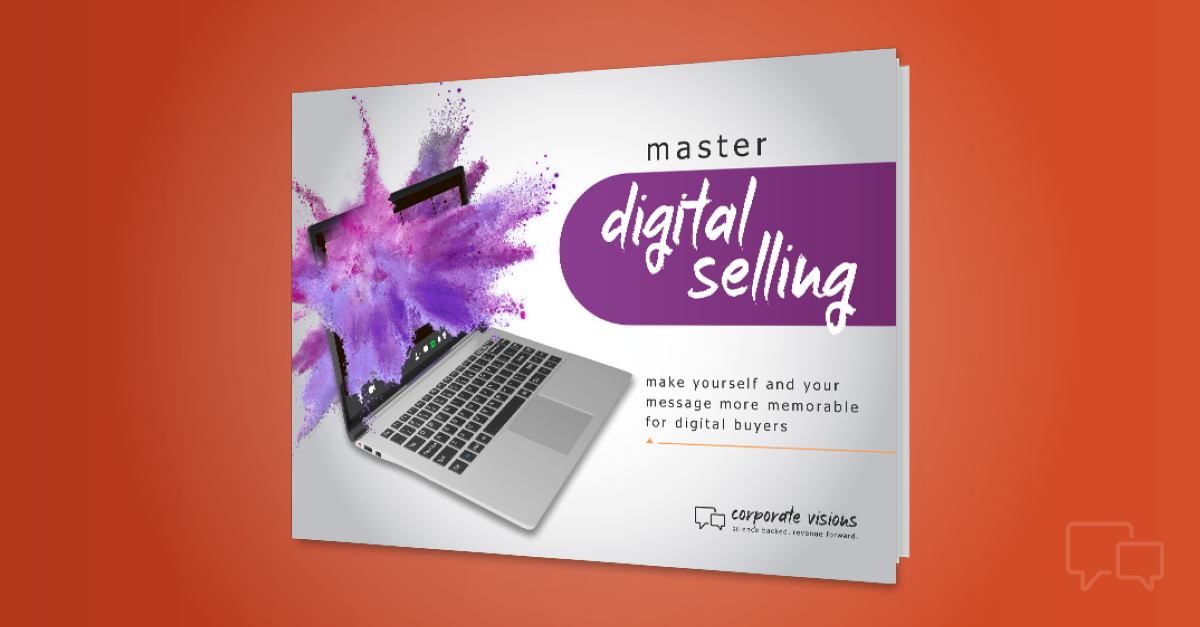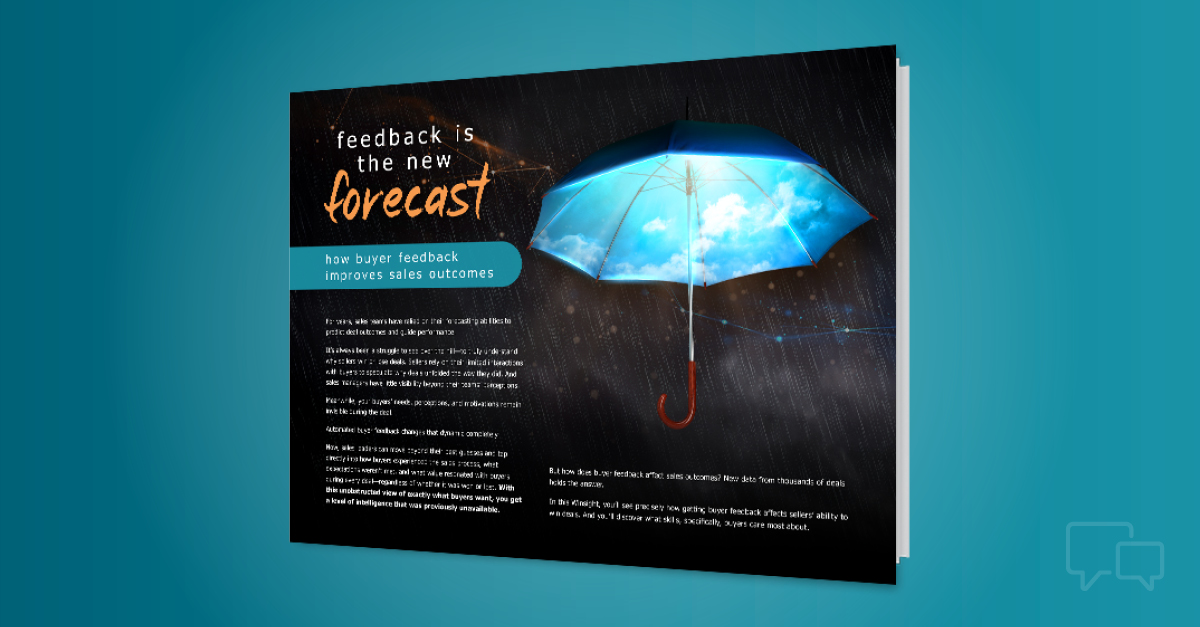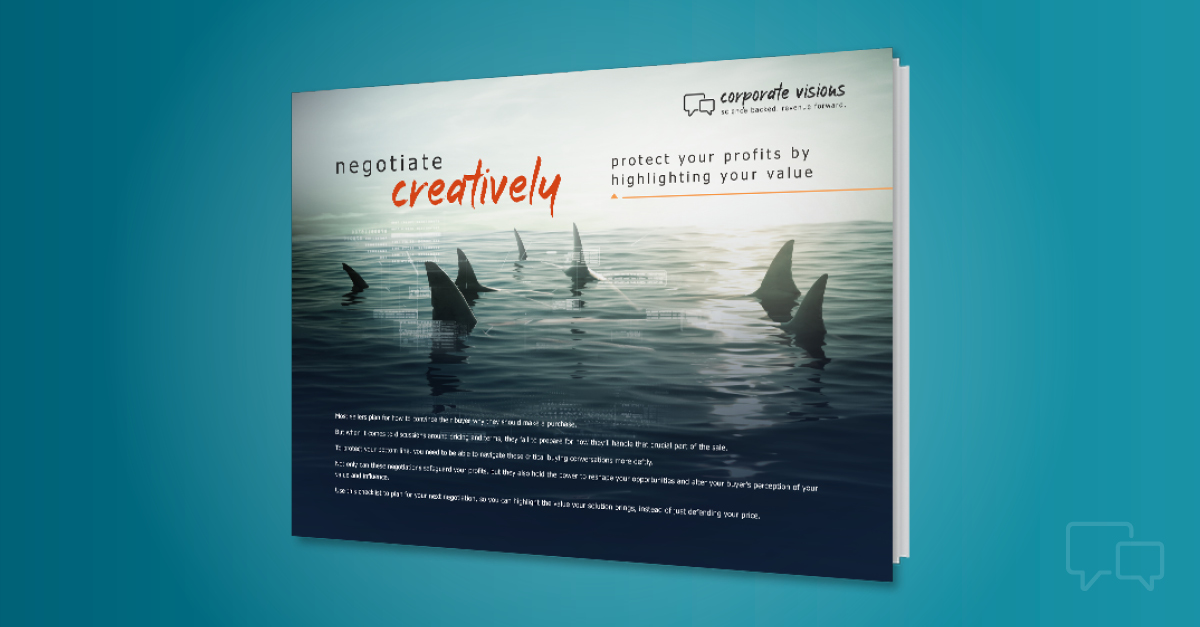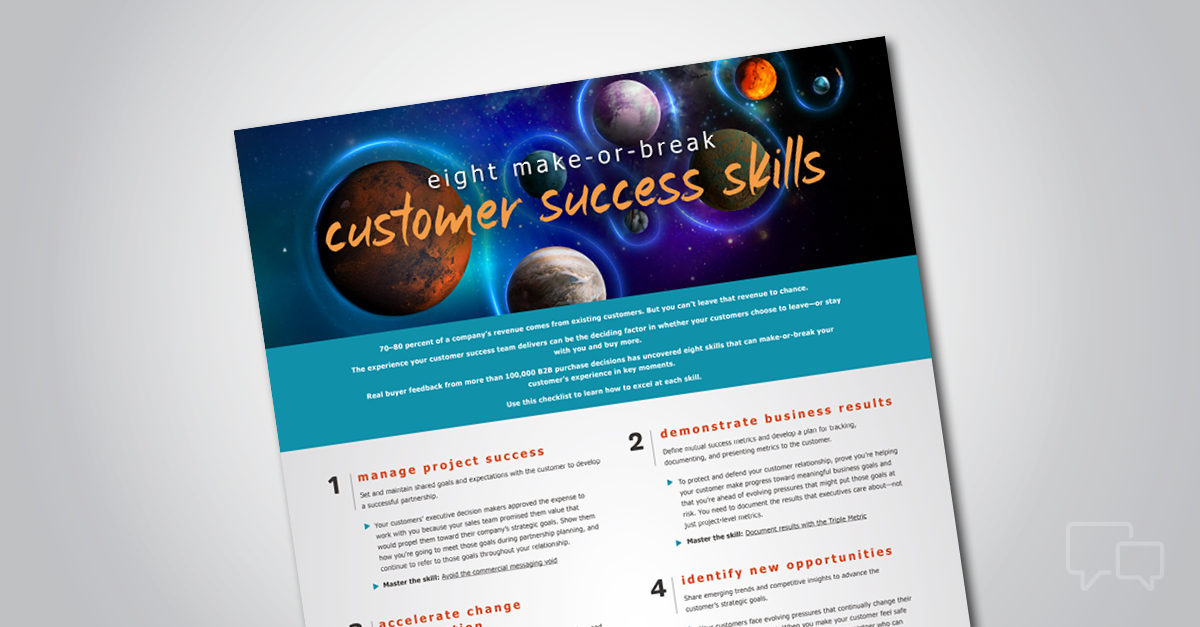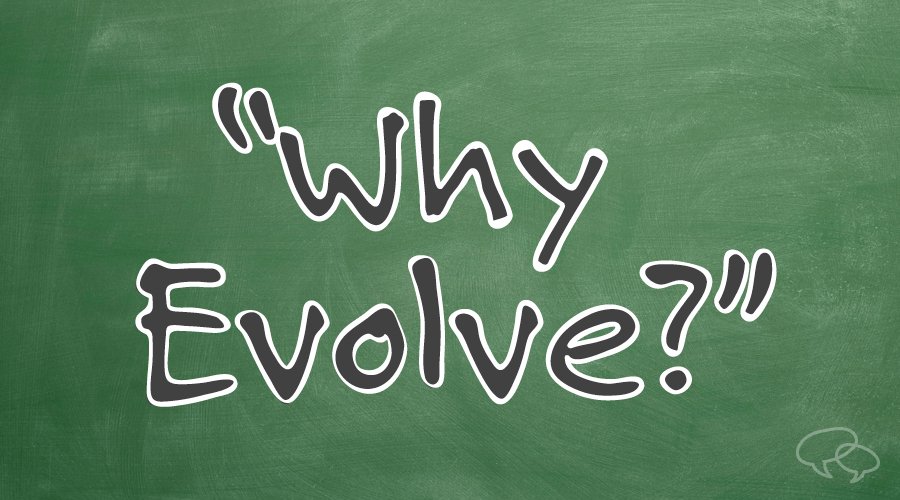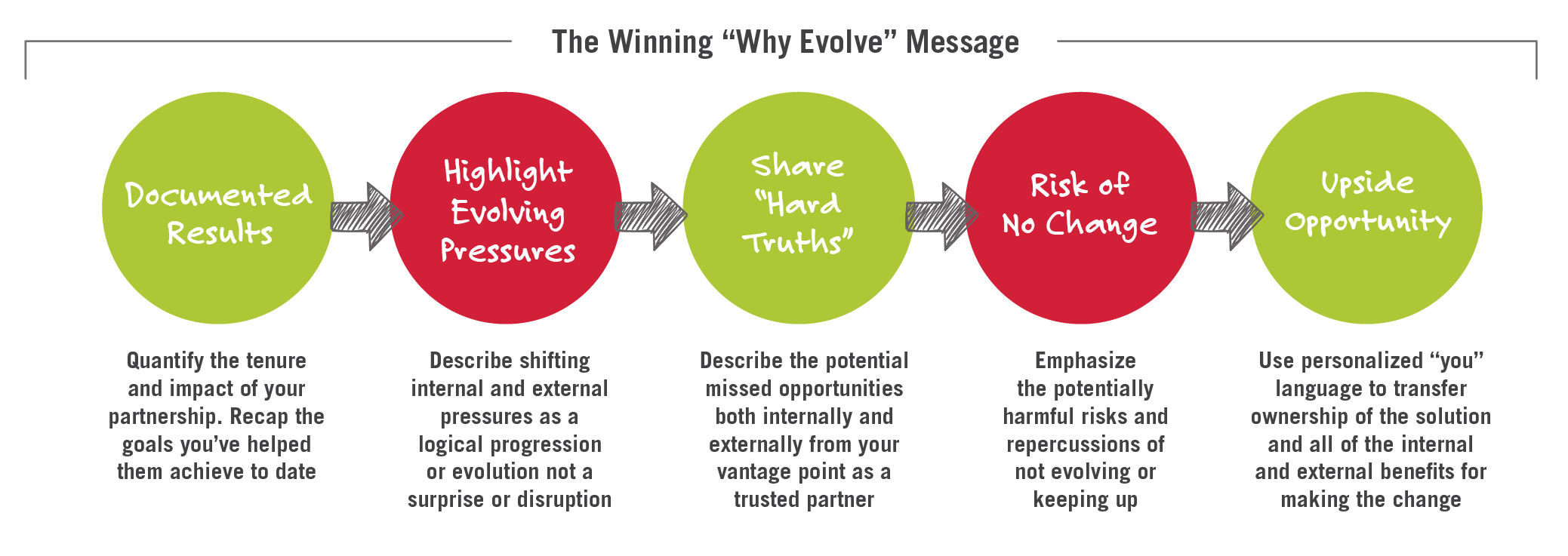Complex sales processes are often created out of pure necessity.
Think about these three things: a Honeycrisp apple, a cronut and a mule. Each is an example of a hybrid that was created for a reason. The first two were developed purely in the interest of deliciousness. And the mule, a cross-breed of a donkey and a horse, has been shown to be superior in the areas of feeding, health, sure-footedness and intelligence.
There are many examples of creative combinations serving as the key to improvement and evolution. It turns out this idea extends to complex sales.
When it comes to invention in the sales domain, there are three critical questions to consider:
- Is there a current need?
- What are the current limitations?
- What is the most effective alternative?
Let’s explore each of these questions as they relate to sales messaging throughout the complex sales cycle.
Is there a current need?
Sales is a continuum of conversations.
On one side, you have customer acquisition. These are prospects you want to convert into customers. On the other, you have customer retention and expansion, the customers you have, want to keep, and with whom you expect to grow.
Both sides of this continuum have distinct buyer psychologies—meaning that the stories and skills you need when you’re trying to acquire new customers are dramatically different from the stories and skills you need when you’re trying to retain or expand with existing customers. Research shows that you need a great ”Why Change?” story for customer acquisition and a great “Why Stay?” story for retention.
So, what’s the need?
The real unknown lies between these two sides—in what’s traditionally thought of as an upsell conversation.
Imagine you’ve successfully acquired a customer, but you don’t want them just to stay and keep buying the same things from you. You want them to migrate to buying higher-value, upgraded solutions, and services. You want them to evolve.
What’s the most effective type of message in this grey area? The traditional thinking is that you should challenge your customer. But that flies in the face of research showing that this provocative approach—proven to be effective when you’re the outsider—is not scientifically effective when you’re the incumbent. So what’s going to work best in this upsell situation—or what might be thought of as your “Why Evolve?” story.
What are the current limitations?
When you’re talking about a selling dialogue this important, it’s unwise to leave it up to good feelings and guesswork. That’s why we conducted a test with Dr. Nick Lee, a professor at Warwick Business School in Coventry, U.K., to determine the most effective message type for this situation. What we found initially is that in the under-researched area of customer expansion, a provocative “Why Change?” message outperformed the “Why Stay?” customer retention message across several key categories, including:
- Credibility
- Innovative thinking
- Vendor excitement for bringing the solution to their attention
- Importance to future success
- How unusual or unexpected the message was
- How convincing the message was
Impressive list, right? But it doesn’t tell the whole story. Because in the same test, the more protectionist “Why Stay?” message outperformed the provocative alternative in some areas of its own, including:
- Trustworthiness
- Likelihood of purchasing
- Confidence in the decision
- Pitch quality
- Uniqueness
- Trusted advisor status
So while the customer acquisition and customer retention messages showcased their strong suits, it still seemed like something was missing. So we wondered: Would it be possible to fashion a new message type that outperformed both of these? That’s the challenge we took on when trying to test and create the most effective “Why Evolve?” message.
What is the most effective alternative?
A hybrid. When the cronut was invented, it was named one of the greatest inventions of the year by Time magazine. And honeycrisp apples have become so popular that they now account for 24 percent of all apple sales in the US. The “winning” hybrid our research yielded is a message framework called “Why Evolve?”
Okay, so we may not be holding our breath for an award from Time Magazine (although we wouldn’t turn down any hardware). But this message framework has some tremendous potential for the marketplace. Let’s take a look at what the hybrid elements of this new message are, and how they relate to the upsell situation at hand.
First and foremost, you’re the incumbent, so use that to your advantage. You know the customer. You have a privileged understanding of their situation, their limitations, their ambitions. What this research shows is that buyers will respond to you favorably if you build this understanding into your message. Show you know them. Show you understand their business. Show you are unafraid to have honest and difficult conversations.
These elements of the message are more closely aligned with the “Why Stay?” dimension of this story. But there’s more to it than that—you can’t just be content with the status quo. You need to upsell them, and you need to drive some degree of change.
To do this, you have to show that there are deficiencies in their current approach. You have to show that the status quo you helped create is not evolving at the pace of change. You have to show that there is a real risk if the customer can’t evolve and keep up.
The above examples can be complex sales conversations to have with a customer, but if you create the right foundational base that begins with reinforcing your relationship, it will enable you to share these hard truths with your customer in a way they will appreciate. And that will motivate them to buy.
Hybrids can be scary, especially when they appear to combine two dramatically different things. That characterizes the winning “Why Evolve?” message to a T. But, if you are willing to consider that a marriage of opposites can unearth new possibilities that have yet to be executed expertly in marketing and sales, then you have the opportunity to win more upsell business. And as far as your wallet goes, the result will be sweeter than a Honeycrisp.
Get the full “Why Evolve?” research and analysis in this report.

